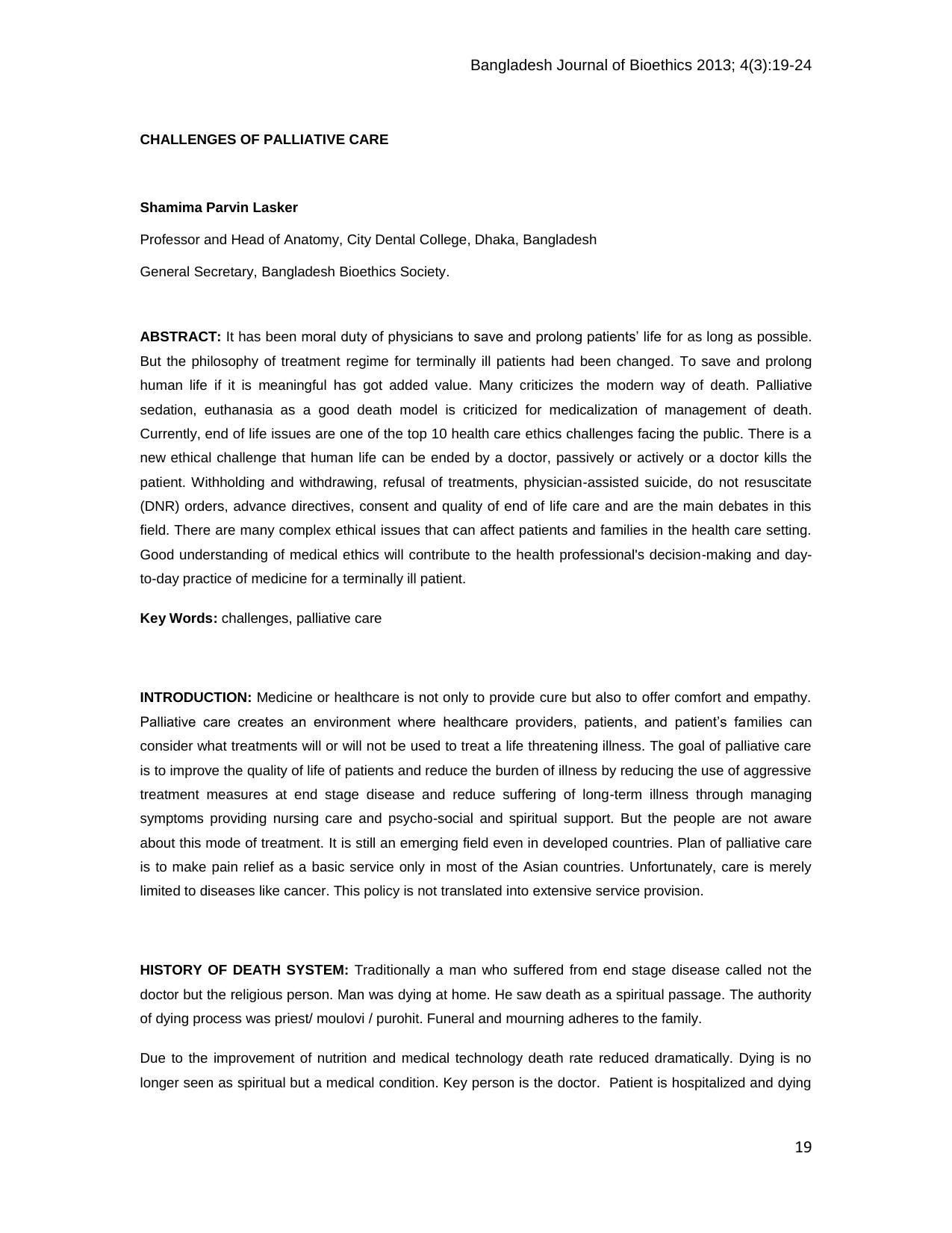
CHALLENGE OF PALLIATIVE CARE PDF
Preview CHALLENGE OF PALLIATIVE CARE
Abstract: It has been moral duty of physicians to save and prolong patients‟ life for as long as possible. But the philosophy of treatment regime for terminally ill patients had been changed. To save and prolong human life if it is meaningful has got added value. Many criticizes the modern way of death. Palliative sedation, euthanasia as a good death model is criticized for medicalization of management of death. Currently, end of life issues are one of the top 10 health care ethics challenges facing the public. There is a new ethical challenge that human life can be ended by a doctor, passively or actively or a doctor kills the patient. Withholding and withdrawing, refusal of treatments, physician-assisted suicide, do not resuscitate (DNR) orders, advance directives, consent and quality of end of life care and are the main debates in this field. There are many complex ethical issues that can affect patients and families in the health care setting. Good understanding of medical ethics will contribute to the health professional's decision-making and day to-day practice of medicine for a terminally ill patient.
Key Words: challenges, palliative care
Bangladesh Journal of Bioethics 2013; 4(3):19-24
